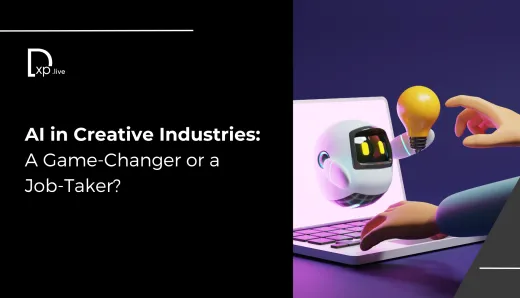AI and the Future of Contact Centers: Amplifying the Human Touch

Artificial Intelligence (AI) is no longer just a futuristic concept—it's here, and it's rapidly transforming industries across the board, with contact centers being a prime beneficiary. As companies grapple with the dual goals of improving customer satisfaction and enhancing operational efficiency, AI offers a tantalizing promise: automating repetitive tasks while empowering human agents to deliver more meaningful, value-driven customer experiences. However, the nuanced integration of AI into contact centers is not without its challenges and critical considerations. Let’s explore these key points.
1. AI Isn’t Replacing Humans—It’s Amplifying Them
One of the biggest misconceptions about AI in customer service is that it’s a tool for replacing human interaction. Many businesses fall into the trap of thinking that more automation equates to better service. However, as Zoom’s practical guide points out, the goal isn’t to eliminate human touch but to amplify it. AI is most powerful when it assists human agents by reducing their cognitive load on mundane tasks, allowing them to focus on more complex, emotionally nuanced interactions.
Expert View: In an era where customer loyalty is increasingly fickle, the importance of human connection cannot be overstated. Companies leveraging AI effectively understand this. The key is to find that sweet spot between efficiency and empathy. By automating back-end tasks—such as call summaries, auto-suggested responses, and knowledge retrieval—agents are freed to provide thoughtful, personalized service. AI, in this sense, is more of an augmentation tool rather than a replacement.
2. Balancing the Hype with Realistic Implementation
Generative AI has dominated discussions across industries. According to McKinsey, AI could contribute trillions of dollars to the global economy, a statistic that excites executives but leaves operational teams wrestling with practical application. Contact centers are at the forefront of this challenge, having to strike a balance between jumping on the AI bandwagon and ensuring it delivers tangible value.
Expert View: While the hype is warranted to an extent, there’s a risk that companies will rush into AI adoption without clear strategic goals. Zoom's guide wisely advises a thoughtful, customer-centric approach, echoing the sentiment that "failing to plan is planning to fail." The temptation to automate everything must be resisted; AI should be implemented incrementally and strategically. This measured adoption ensures that technology does not outpace human capability, leading to poor customer experiences and overwhelmed agents.
3. Addressing the Common Challenges in AI Adoption
Zoom identifies several pain points in AI implementation: hard-to-predict ROI, cost concerns, training, and data privacy. While these challenges may seem daunting, they are not insurmountable.
- ROI: Predicting the return on AI investments can feel like aiming at a moving target. The benefits of AI—higher customer satisfaction and increased agent productivity—often manifest gradually. Companies must be patient, and instead of expecting immediate, measurable returns, they should focus on long-term improvements.
- Cost: Yes, AI can be expensive to implement, but companies should remember that it’s a long-term investment. Intelligent virtual agents and self-service solutions can begin delivering cost savings almost immediately by reducing the load on human agents. Over time, these tools lead to better operational efficiency.
- Training: Training is another critical challenge. Rolling out AI successfully requires an investment in upskilling teams. While low-code and no-code AI tools make implementation easier than in the past, human oversight remains crucial to ensure these systems function properly.
- Data Privacy: Data privacy concerns are perhaps the thorniest issue. AI systems rely on vast amounts of data, and the risks associated with data misuse or breaches are real. Organizations must be transparent with customers about how their data is being used and ensure they are partnering with trustworthy AI vendors.
Expert View: Each of these challenges presents an opportunity. ROI can be tracked not just through financials but through qualitative measures, such as employee engagement or improved customer feedback. Similarly, addressing cost concerns requires a shift in thinking—AI should be seen as a necessary upgrade, much like any other transformative technology. Training, far from being a hurdle, can empower agents to better use AI and provide more impactful service. Lastly, businesses must prioritize robust data governance policies to build trust with both customers and regulators.
4. AI Helps Agents—Not Just Customers
It’s easy to see AI as a tool for improving customer experience, but Zoom’s guide rightly points out that AI also has immense potential for empowering agents. AI can reduce the frustration of repetitive tasks, streamline workflows, and offer real-time information—transforming how agents perform their roles.
Expert View: AI’s role in improving employee experience is a narrative often lost in the conversation. Contact center agents, who are on the front lines of customer service, suffer from high levels of burnout and attrition, often due to the repetitive nature of their work. By alleviating mundane tasks—whether it’s through automatic summarization of calls, AI-driven knowledge bases, or intelligent routing of issues—agents can focus on higher-value, emotionally intelligent tasks that increase job satisfaction. This symbiotic relationship between AI and human agents can create a virtuous cycle: happier agents lead to better customer service, which in turn improves overall business performance.
5. A MultiCaaS Future: Unified Communications with AI at the Core
Zoom’s push toward MultiCaaS (the integration of Unified Communications and Contact Center as a Service) represents a compelling future for customer experience. By merging employee and customer-facing platforms, organizations can break down silos and foster seamless communication. AI serves as the connective tissue in this ecosystem, enhancing everything from customer service interactions to internal collaboration.
Expert View: This is where the future of AI in contact centers truly shines. AI-driven insights and data-sharing across departments allow businesses to be more agile and responsive to customer needs. Imagine a product development team having direct access to contact center data, allowing them to innovate based on real-time customer feedback. MultiCaaS doesn’t just make life easier for agents—it has the potential to revolutionize business operations, creating a more customer-led approach to innovation and service.
6. The Human Element Must Remain Central
As organizations march toward an AI-powered future, the importance of keeping the human element central cannot be overstated. AI is most effective when it supports—not replaces—human agents. This balanced approach, championed by experts like Gartner and Metrigy, is critical for avoiding the pitfalls of over-automation.
Expert View: Zoom’s guide highlights a crucial point: customer satisfaction is rooted in human connection. AI can help facilitate these connections, but it should not become a barrier to them. Organizations that succeed in integrating AI into their contact centers will do so by maintaining a strong human element—ensuring that technology enhances, rather than detracts from, the customer experience.
Conclusion: A Thoughtful, Human-Centric AI Approach
AI in contact centers offers enormous potential to transform customer service, empower employees, and drive business success. However, the key to unlocking its full value lies in thoughtful, strategic implementation. Organizations must strike a delicate balance—using AI to optimize operations while preserving the personal touch that customers still crave. By focusing on augmenting rather than replacing human interaction, businesses can harness AI's power to not only improve efficiency but also deepen customer loyalty in an increasingly competitive landscape.
As we move into this AI-driven future, one thing is clear: while AI is revolutionizing how contact centers operate, the heart of customer service will always be human.




